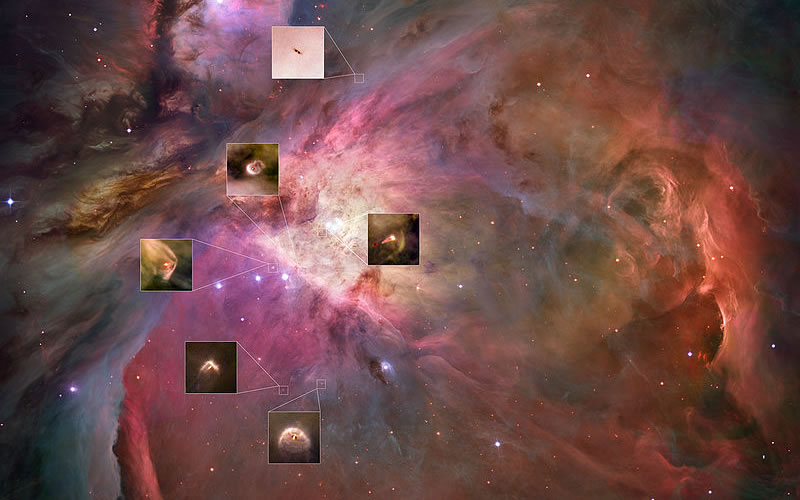Stellar Evolution
What we'll learn in this section
Topic 14 – Stellar evolution
14.3 - Understand the effects of the interaction between radiation pressure and gravity in a main sequence star14.4 - Understand changes to the radiation pressure-gravity balance at different stages in the life cycle of a star with a mass similar to the Sun
14.5 - Understand the balance between electron pressure and gravity in a white dwarf star
14.6 - Understand changes to the radiation pressure-gravity balance at different stages in the life cycle of a star with a mass much greater than the Sun
14.7 - Understand the balance between neutron pressure and gravity in a neutron star
14.8 - Understand the effect the Chandrasekhar Limit has on the outcome on the final stages of the life cycle of a star
14.9 - Understand the principal stages and timescales of stellar evolution for stars of similar mass to the Sun, including:
a) emission and absorption nebula
b) main sequence star
c) planetary nebula
d) supernova
e) white dwarf
f) black dwarf
14.10 - Understand the principal stages and timescales of stellar evolution for stars of much larger mass than the Sun, including:
a) emission and absorption nebula
b) main sequence star
c) red giant
d) white dwarf
e) supernova
f) neutron star
g) black hole
14.11 - Understand how astronomers study and gather evidence for the existence of black holes
In this section you will learn about different types of star and their life cycles.
At the end of this section take the mini quiz to test yourself.

 | © All Rights Reserved |
| © All Rights Reserved |